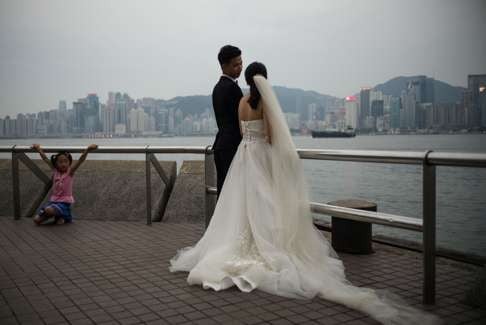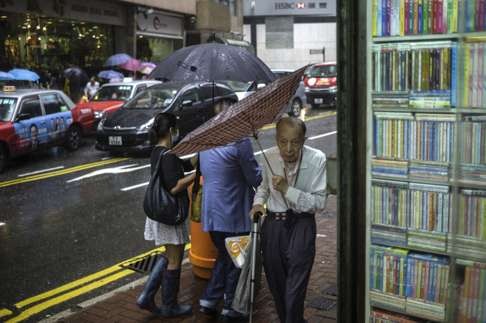
Hong Kong should welcome cross-border marriages, and make it easier for more to wed
Paul Yip says the city must not ignore the impact of such unions and other demographic trends, given the need to mitigate population ageing and boost workforce numbers


One reason Hong Kong people look outside the city for a partner is because of the difficulties of finding a spouse locally, given the mismatch in expectations as women become more educated.
Improvements in education and career opportunities for women have led to greater numbers being self-sufficient and financially independent. The social norm of “women marrying up” is still prevalent in society and many have difficulty finding a suitable partner in a small pool. Potential matches are in short supply.
Men who struggle to do as well as women in education and work also face difficulties in finding a suitable partner if they adhere to the preference of “marrying down”.

On top of all this, the preference mainly among professionals for staying single or marrying later has also gained momentum and has had an impact on marriages.
Thus, for some, searching for a partner in another country is seen as a viable option.
Since mainland women, especially those from rural areas, may see marriage as a way for them and their families to escape poverty, they are looked upon by eligible men as potential partners. Yet, mainland women are also in short supply due to the one-child policy and the preference for a male child. It is estimated that 20 million men will struggle to find a partner on the mainland.
At the same time, the number of shengnu (that is, women typically aged 26 or above, well-educated and not yet married) is on the rise. These women are financially independent and might not wish to compromise in finding a partner. Those who meet their standards are in short supply, too.

Globalisation has made the marriage market more fluid and dynamic, and subject to the push and pull factors of migration. Every person is seeking the best place to live. Every government is looking for foreign talent and skilled workers to enhance their human capital.
If local conditions improve, the push force for locals to leave their hometown to get married will diminish. If the difference in the quality of life between local and foreign countries is only marginal, the pull factors for attracting foreigners is limited.
We may not need to promote marriage per se, but we can at least help remove any barriers to it
As living standards on the mainland have continuously improved, the number of cross-border marriages involving mainland women has shrunk over the past few years. Hong Kong people need to compete with others in this global marriage market. Due to Hong Kong’s economic inertia in the past decade, the material superiority of residents has diminished.
Cross-border marriages give many people the chance to have a family. However, at the same time, there are lots of challenges due to differences in culture, language and lifestyle. Domestic violence is not uncommon. Social problems relating to the identity of the next generation, social harmony and cohesion have all become a real concern, as has an increase in the divorce rate among cross-border couples in the region .
The Korean and Japanese governments have introduced various measures to improve the assimilation of foreign brides, including a language proficiency test. The Taiwanese government has set up more stringent criteria for allowing foreign brides to settle on the island.
Hong Kong has witnessed at least 300,000 cross-border marriages in the past two decades. The 150 mainland migrants allowed in per day are mainly the spouses and children of Hong Kong residents. In the past 20 years, nearly 1 million mainland migrants have joined the Hong Kong population.

Certainly, their arrival has helped mitigate our acute ageing problem and improve workforce numbers. However, there are also many outstanding issues which need to be dealt with, especially the waiting time to move to Hong Kong. It takes about three years for a mainland spouse to be allowed to come to Hong Kong, yet there is no such wait for spouses from other countries. The waiting time has been considerably shortened in recent years but it is still a barrier.
The family is the core unit of any effective society and Hong Kong’s family structure has been changing in both size and composition. Average family size has been reduced from four in the 1990s to 2.8 in 2015. There are increasing numbers of single people in the community and we are facing an acute ageing problem, with the number of working-age population due to start to decline by 2018.
Cross-border marriages have provided a steady supply of manpower but it is important to provide sufficient services and support for these newcomers and reduce the associated stigma in the community. It is time for our community to make Hong Kong an inclusive and welcoming home for all.
The government needs to prepare better for the impact of the marriage squeeze on our population structure. We may not need to promote marriage per se, but we can at least help remove any barriers to it.
Paul Yip is a professor in the Department of Social Work and Social Administration at the University of Hong Kong